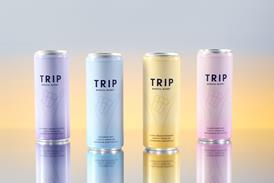Coca-Cola has embraced a crackdown on sugar content and sees opportunities to profit from the World Health Organisation’s (WHO) recommendation that people limit added sugars to 10% of their daily caloric intake.
James Quincey, president and chief executive of Coca-Cola, said last week that the company saw “exponential” growth opportunity within the WHO recommendations.
“For us to drive sustainable, profitable growth of our brands, we also need to encourage and enable our consumers to control added sugar consumption,” said Quincey.
Coca-Cola was making a “very conscious effort” to not just expand its portfolio, but to shape it “in a very deliberate way”.
The company said it was reducing the amount of sugar in its carbonated soft drinks by reformulating existing ones while preserving the taste consumers loved, and while rolling out Coca-Cola Zero Sugar and other low-/no-sugar brands globally.
It was also expanding the availability of smaller packages such as mini cans and it was investing in sugar alternatives – key priorities.
Quincey said the company knew it needed “to do things differently to help people moderate their intake of added sugar.”
The company plans to reduce sugar in more than 500 drinks globally, following a reduction in more than 200 drinks last year. It currently has more than 1,100 low-or no-sugar drinks.
His comments come at a critical time for the soft drinks industry around the world, including in the UK, where a soft drinks levy is scheduled to come into effect next April.
Drinks containing more than 8g of added sugar per 100ml will be taxed at 24p a litre; those with 5-8g, at 18p and those will less than 5g will be exempt, as will fruit juices, products without added sugar, and dairy-based drinks.
“People’s tastes and preferences are changing,” said Quincey, “and we’re changing too.
“We can legitimately aspire – with one portfolio – to not only satisfy, engage and deliver great taste for a whole day’s worth of drinks but do so within a healthy, balanced diet.”















No comments yet